Published Research Articles
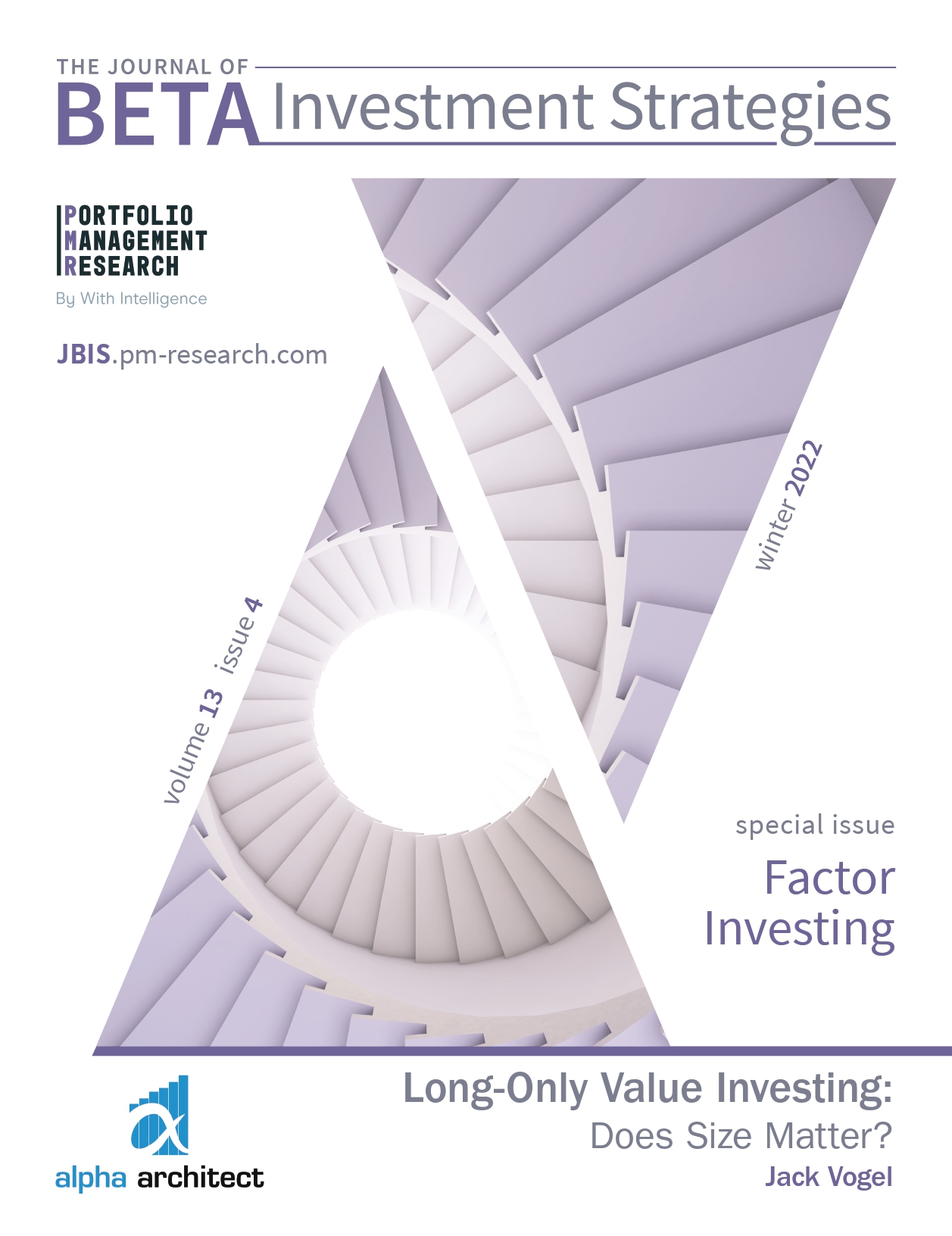
Long-Only Value Investing: Does Size Matter?
Author: Jack Vogel
Abstract: The academic value factor (long cheap stocks, short expensive stocks) earns higher returns among small-cap stocks. When viewed through the lens of a long-only value investor, however, size is a less important factor. For example, equally weighted large-cap value portfolios have historically earned similar returns as small-cap value portfolios. This finding is robust to different value measures and markets. Despite realized returns being statistically similar, the liquidity profile of the two value portfolios is dramatically different: Equally weighted large-cap value portfolios have approximately 11 times (or more) the liquidity of small-cap
value portfolios.
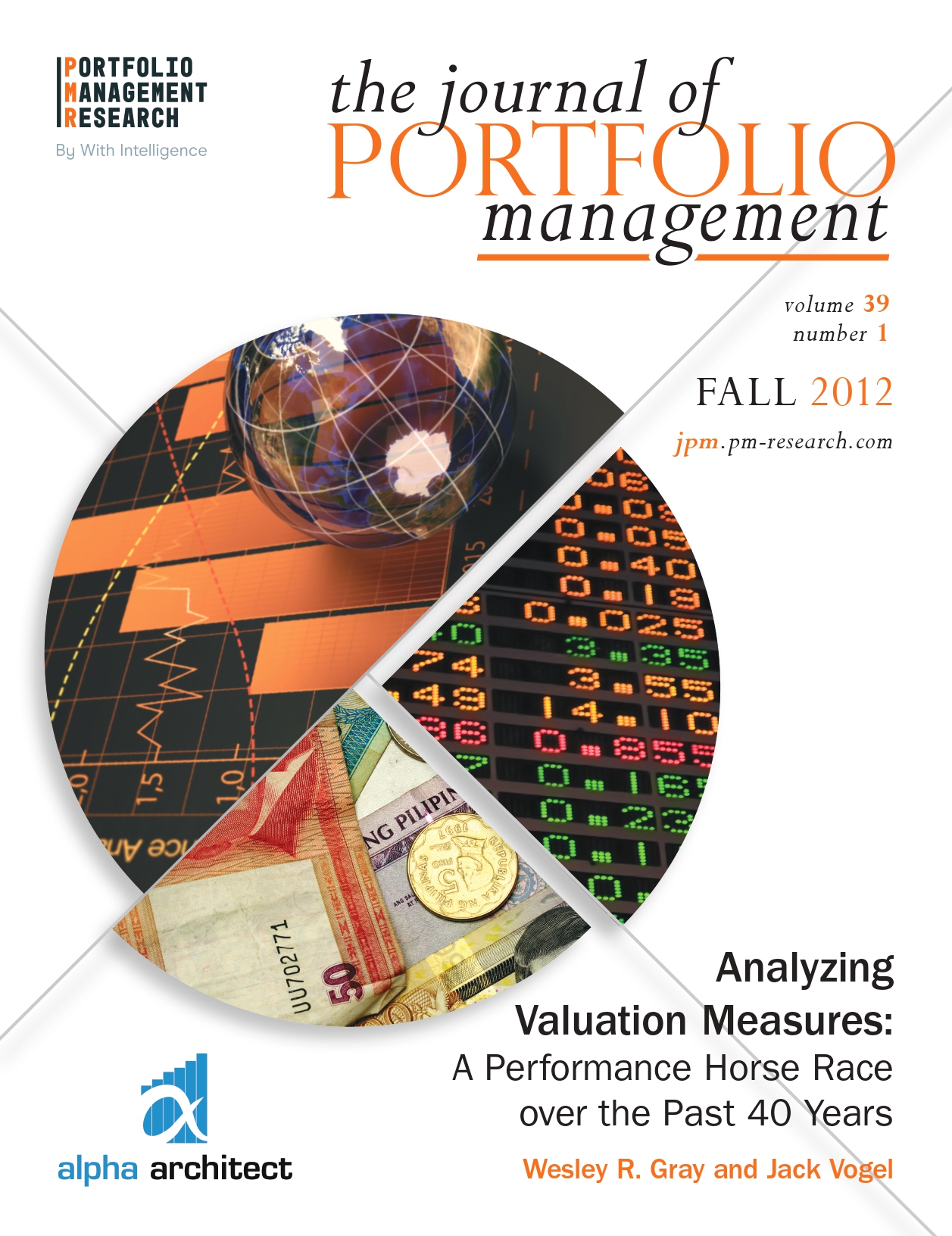
Analyzing Valuation Measures: A Performance Horse Race over the Past 40 Years
Authors: Wes Gray and Jack Vogel
Abstract (SSRN): We compare the investment performance of portfolios sorted on different valuation measures. EBITDA/TEV has historically been the best performing metric and outperforms many investor favorites such as price-to-earnings, free-cash-flow to total enterprise value, and book-to-market. We also explore the investment potential of long-term valuation ratios, which replace one-year earnings with an average of long-term earnings. In contrast to prior empirical work, we find that long-term ratios add little investment value over standard one-year valuation metrics.
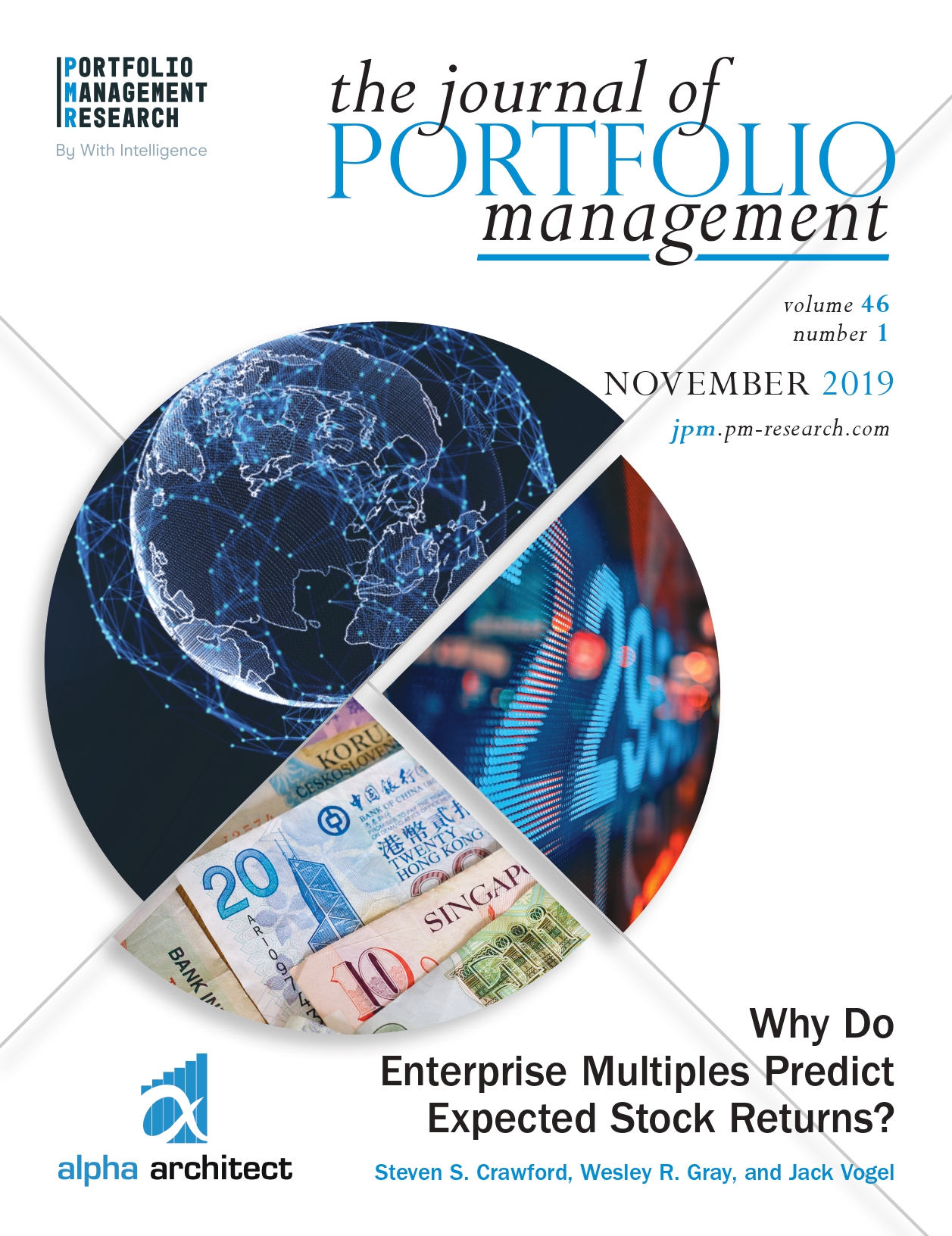
Why Do Enterprise Multiples Predict Expected Stock Returns?
Authors: Steven S. Crawford, Wes Gray, and Jack Vogel
ABSTRACT: The enterprise multiple (EM) effect has been documented across global stock markets. EM is a robust predictor of expected average returns and generates a stronger value effect than traditional value metrics. We find evidence that the EM effect is primarily attributable to mispricing and cannot be explained by higher systematic risk. We document that earnings announcement returns, forecast errors, and forecast revisions all support the notion that the EM effect is driven by mispricing associated with predictable investor expectation errors. Finally, we show that the EM effect is stronger during times of strong market sentiment, which also supports the mispricing-based hypothesis.
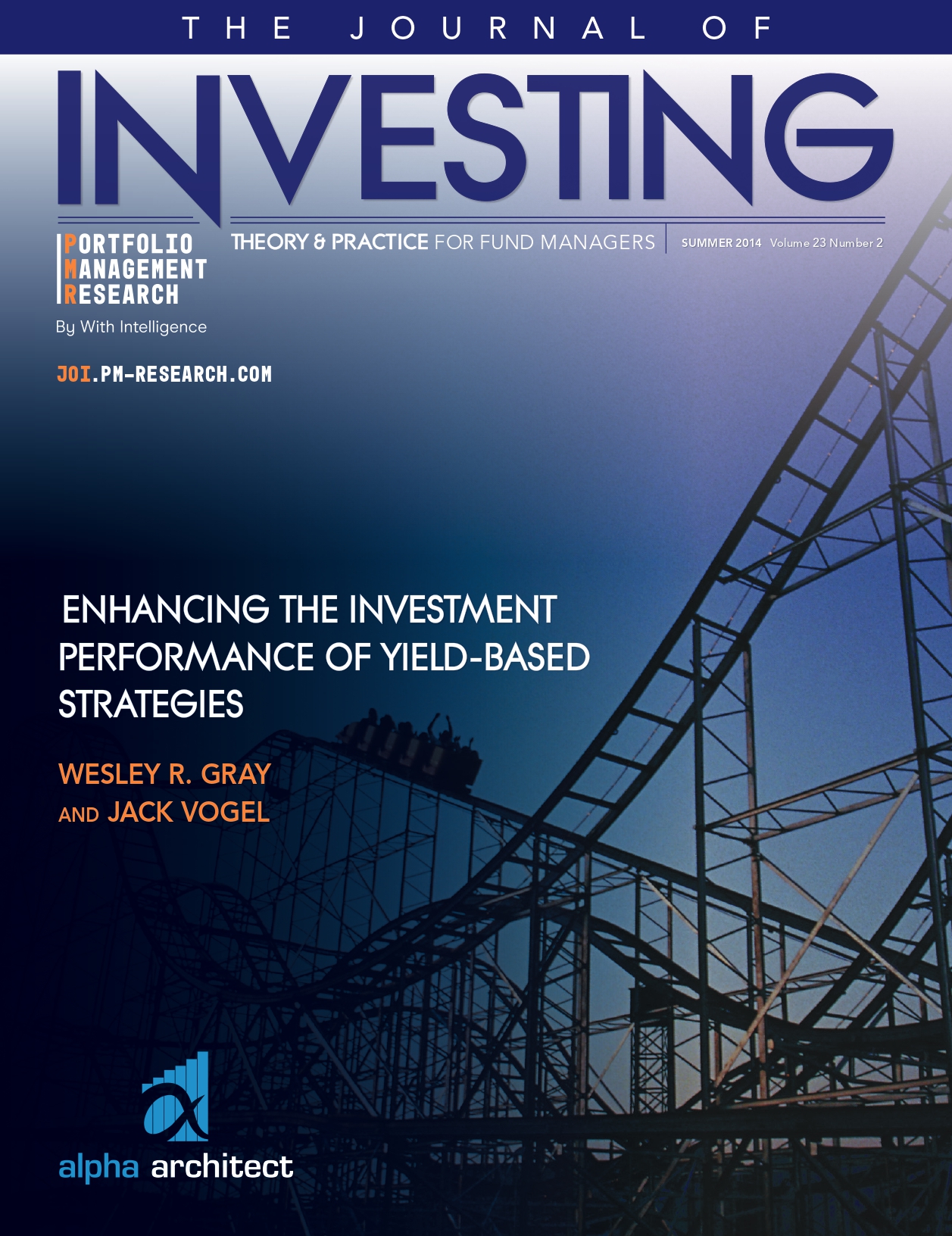
Enhancing the Investment Performance of Yield-Based Strategies
Authors: Wes Gray and Jack Vogel
Abstract (SSRN): High dividend yield stocks do not reliably earn above-average risk-adjusted returns. More complete measures of shareholder yield, which account for net share repurchases, perform better. We explore the use of net-debt paydown as a way to further enhance shareholder yield. The addition of net-debt paydown enhances risk-adjusted returns and creates a shareholder yield metric that is more robust over time. We also explore the technique of separating yield metrics by payout percentage as a way to enhance return predictability. We find some evidence that using payout percentage within a yield category can systematically improve portfolio performance.

What Motivates Buy-Side Analysts to Share Recommendations Online?
Authors: Steven Crawford, Wesley Gray, Bryan R. Johnson, Richard A.
Abstract: We examine why buy-side analysts share investment ideas on SumZero.com, a private social networking website designed to facilitate interaction and information sharing among buy-side professionals. We explore labor market motivations for information sharing and document that analysts with strong incentives to build a reputation (i.e., those who did not attend a top 10 university and those employed at small funds) are significantly more likely to share recommendations.
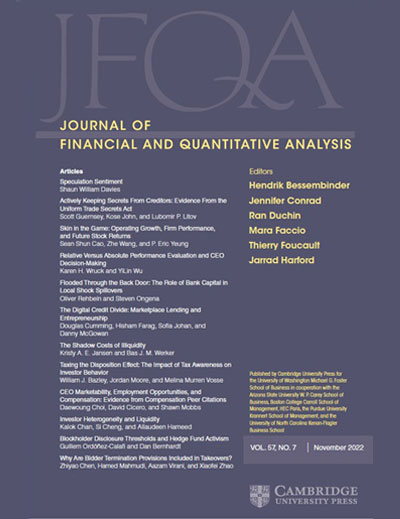
Why Do Fund Managers Identify and Share Profitable Ideas?
Authors: Steven S. Crawford, Wesley R. Gray and Andrew E. Kern
Abstract: We study data from an organization in which fund managers privately share and discuss detailed investment recommendations. Buy recommendations generate positive abnormal returns, and sell recommendations result in negative abnormal returns. In the context of these results, we explore an important economic question: Why do skilled investors share profitable ideas with others? Evidence suggests that the managers in our sample share to receive feedback on their ideas and to attract additional arbitrageur capital to the securities they recommend in order to correct mispricings.
